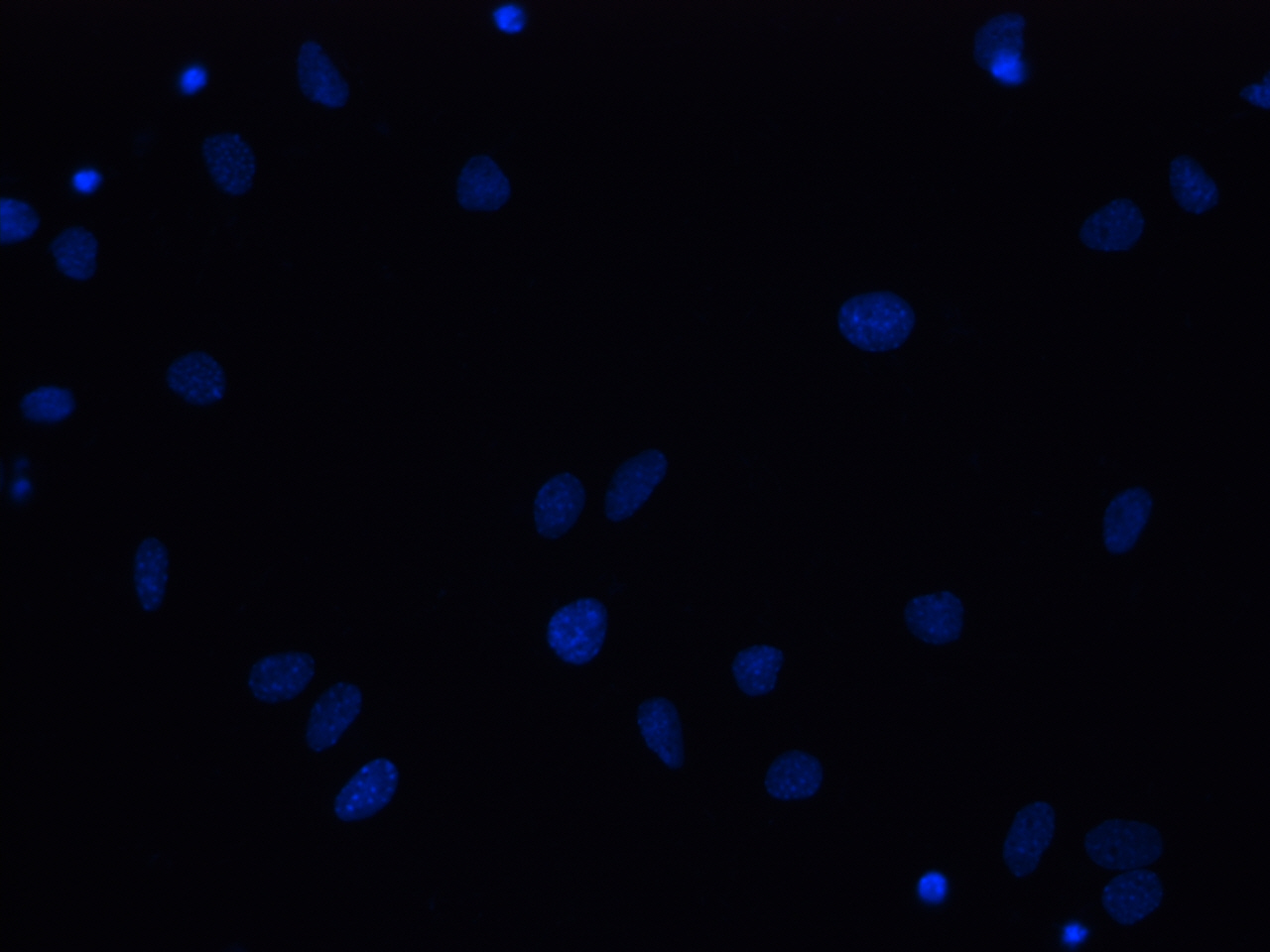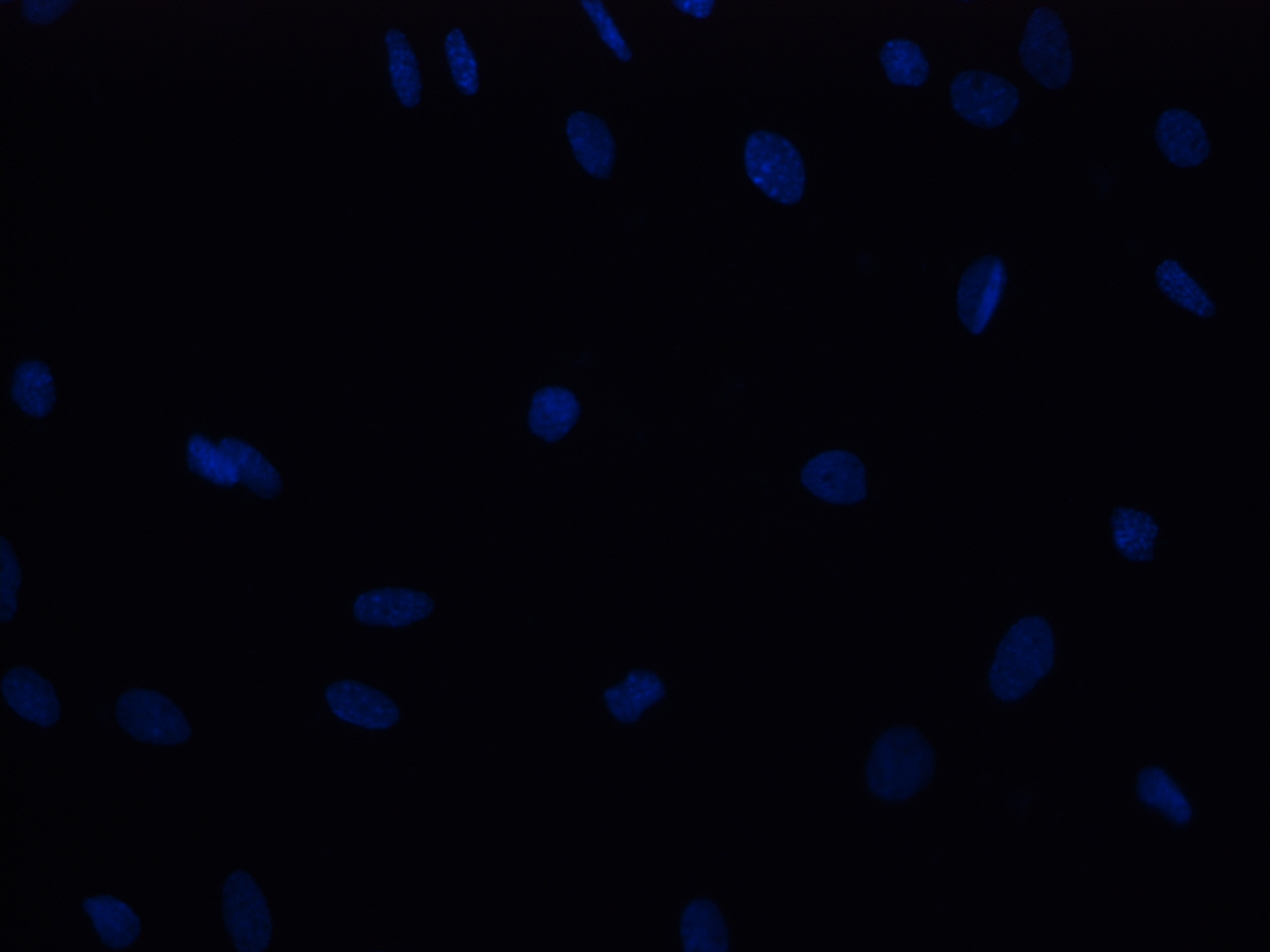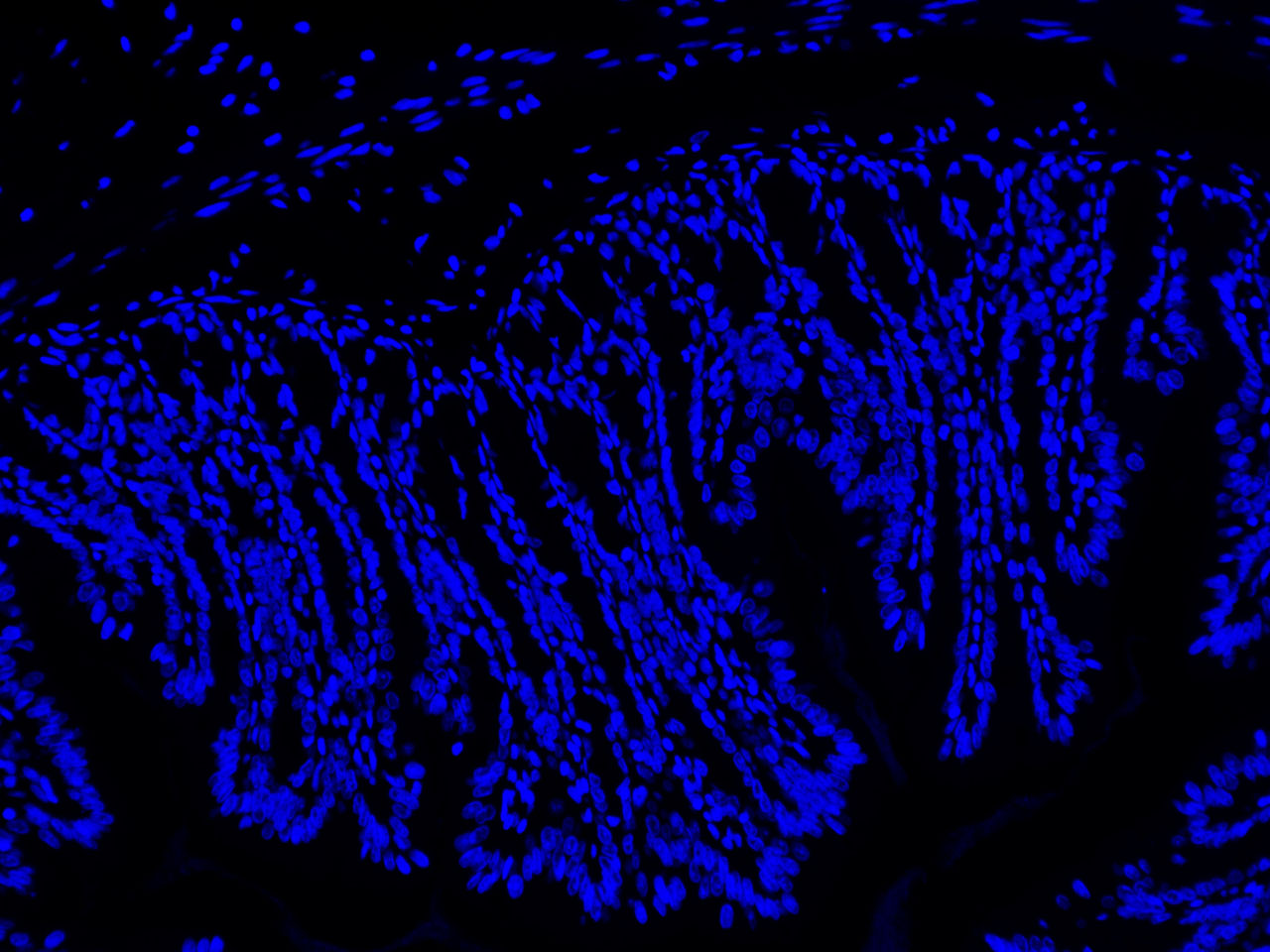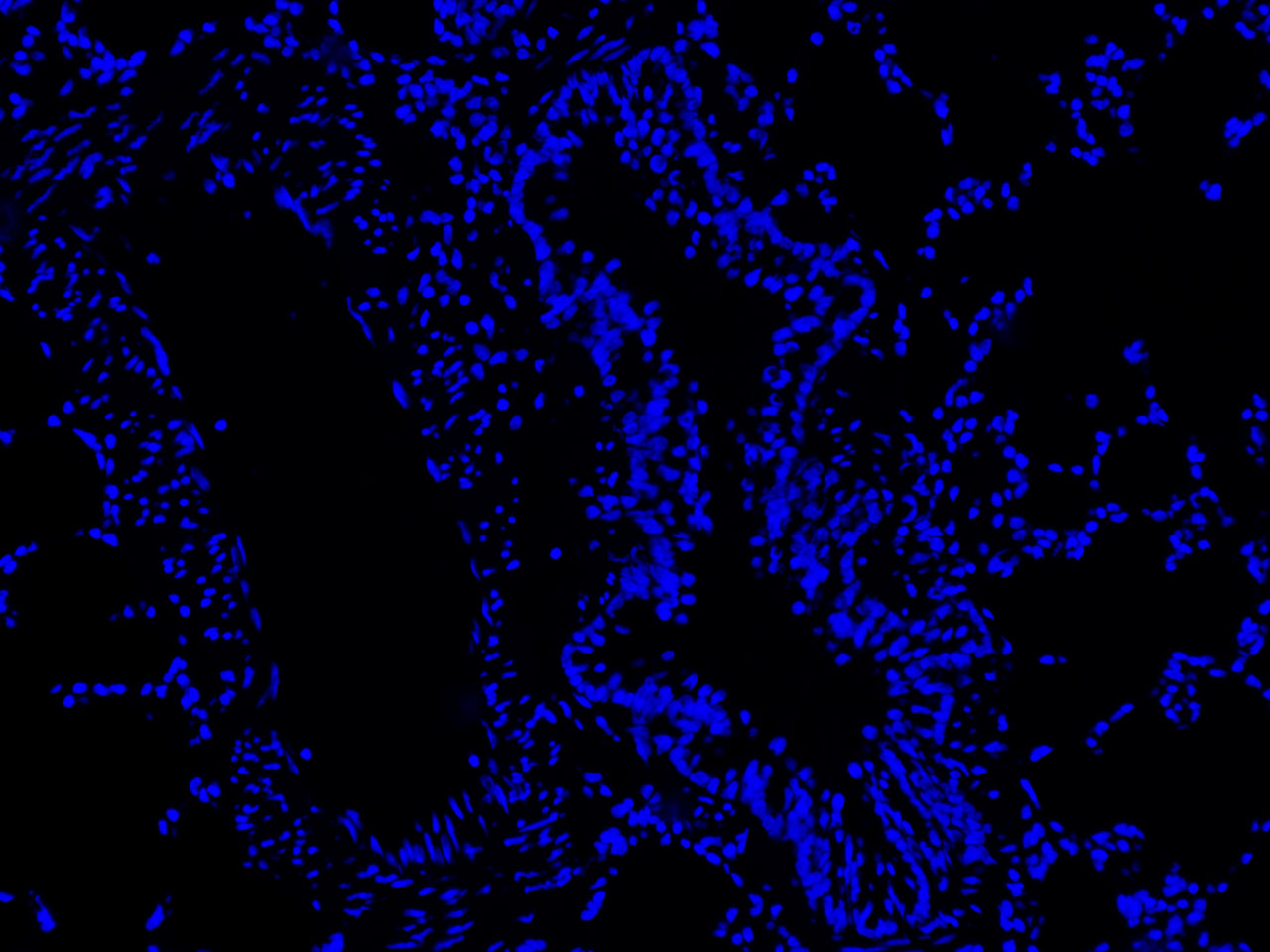Basic Information
Product Name | DRAQ5 Live Cell DNA Staining Solution |
Size | 20 μL/50 μL/200 μL |
Storage | -20 ℃, protected from light |
Shipping | Shipped with ice pack |
Validity | 12 months |
DRAQ5 excitation/emission wavelength: 647/681 nm
Spectrum
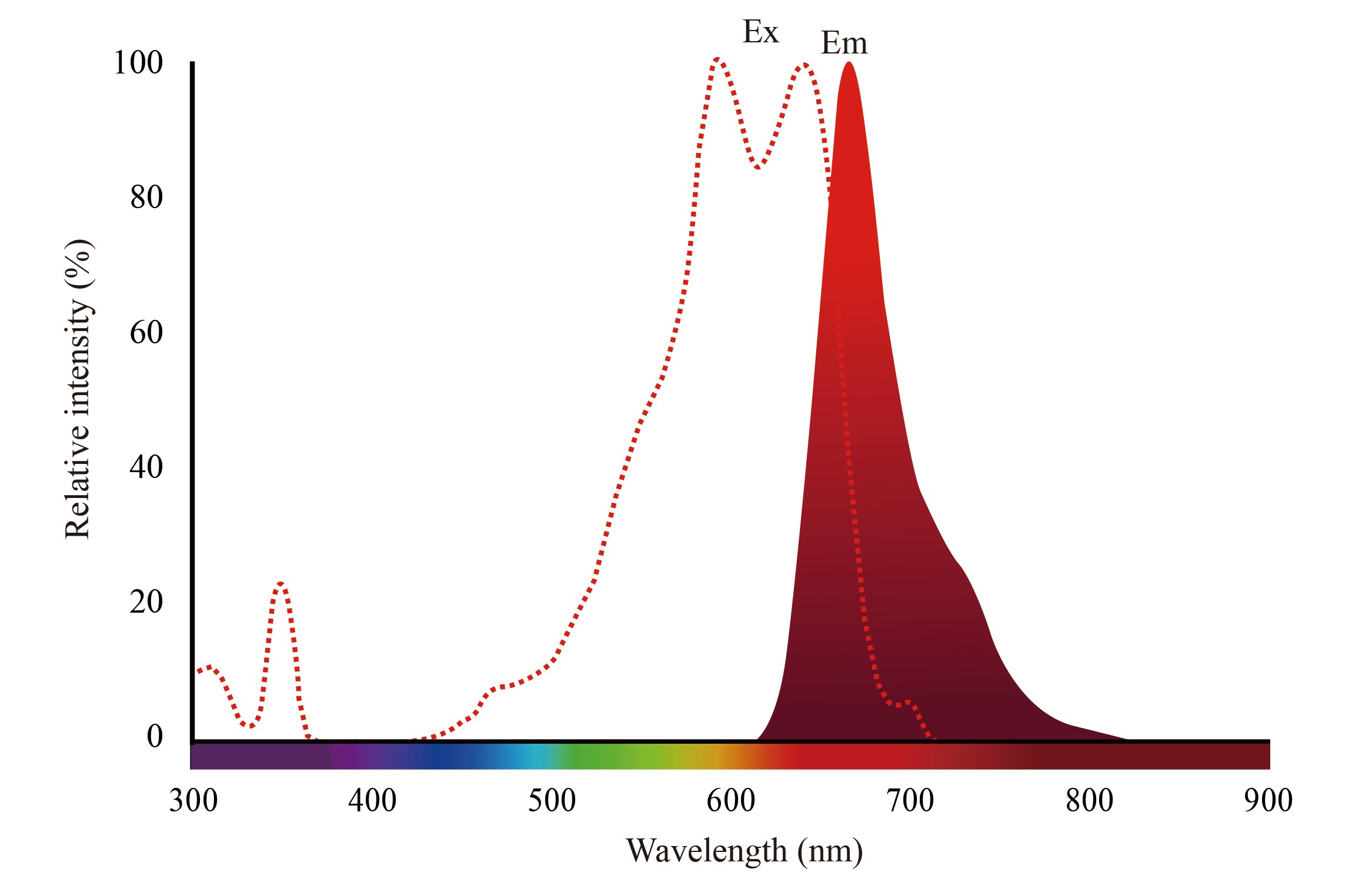
Product Introduction
DRAQ5 is a far-red fluorescent live-cell DNA dye and is an anthraquinone dye with high affinity for double-stranded DNA. It is a membrane-permeable dye that can label live cells or fixed/dead cells. In flow cytometry, this dye can be used to distinguish between nucleated and non-nucleated cells. Since DRAQ5 can bind to DNA in a stoichiometric ratio, it can also be used to report nuclear DNA content and is suitable for chromosome ploidy and cell cycle analysis. In fluorescence microscopy analysis, it can be used as a nuclear counterstain. DRAQ5 has many applications and is highly compatible with existing instrument platforms and widely used protocols. The main application areas are HCS (high-content screening), cell models, GFP (green fluorescent protein), flow cytometry, and fluorescence microscopy.
The excitation wavelength range for DRAQ5 is 488 to 647 nm. For imaging microscopy, it is recommended to use a 633 or 647 nm light source for excitation. For flow cytometry, when exciting this dye at 488 nm, detection can be performed using a 685 LP dichroic mirror and a 710/50 channel; when exciting at 633 nm, a 660/20 channel can be used for detection. For cell cycle/DNA analysis applications, it is recommended to use longer-wavelength filters, such as a 735 LP dichroic mirror and a 780/60 channel, to optimize the CV values of the G1 and G2/M peaks. Please ensure that your instrument can detect this dye.
Due to its broad excitation and emission wavelength ranges, it is not recommended to use DRAQ5 in combination with other far-red fluorescent dyes that can be excited by 488 or 633 nm lasers.
Note: This reagent is for scientific research use only!

